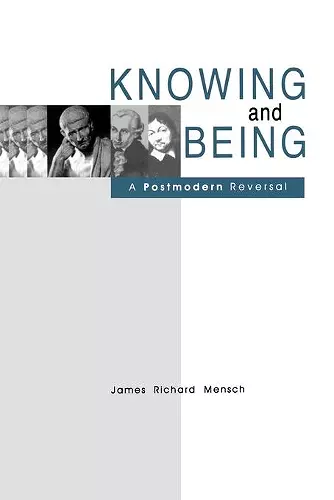Knowing and Being
A Postmodern Reversal
Format:Paperback
Publisher:Pennsylvania State University Press
Published:15th Sep '96
Currently unavailable, and unfortunately no date known when it will be back
This paperback is available in another edition too:
- Hardback£60.95(9780271015545)

Everyone knows that "postmodernism" implies pluralism, anti-foundationalism, and, generally,a postnormative view of the self and reality. While many embrace it, few bother to tell us what is wrong with modernity. What are the problems that brought about its crisis and ultimate demise as a philosophical and cultural movement? What are the lessons for the postmodern movement that can he drawn from them?
James Mensch here explains why modernism failed as a viable philosophical enterprise and how postmodernism must be understood if it is to serve as a defensible intellectual project in its stead. The heart of Mensch's argument is a reversal of the modernist view of the unitary subject as a ground of epistemological and ethical normativity. He substitutes for modernism a view, beholden to Aristotle but adapted to for our present age, that sees subjectivity as temporality in a world where subject and object are interactive. The result is a pluralism of forms of subjectivity corresponding to the different modes of temporality brought about by the world. In a series of analyses on the nature knowing, Mensch shows how we can embrace both the perspectivism of postmodernism while avoiding the skepticism and relativism that have constantly threatened to undermine its insights.
“This is an original, clearly argued analysis of crucial issues in the transition from modernity to postmodernity.”
—Religious Studies Review
“This is a major contribution, containing profound insights that avoid skepticism and relativism and setting forth the limits and failures of modern epistemology, particularly involving Descartes and Kant.”
—Wilfried Ver Eecke, Georgetown University
ISBN: 9780271025773
Dimensions: 229mm x 152mm x 18mm
Weight: 413g
244 pages